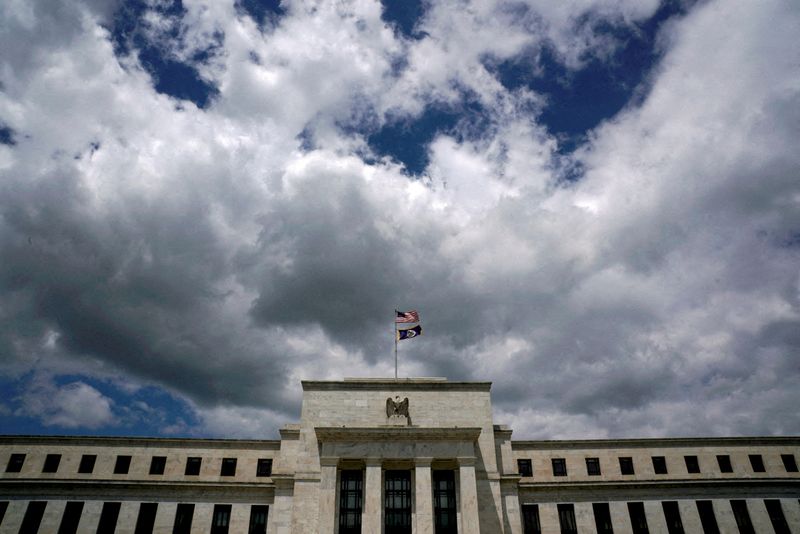By Davide Barbuscia and Shankar Ramakrishnan
NEW YORK (Reuters) - Seemingly endless demand for U.S. top-rated corporate debt has created unease among some investors who think a selloff could be on the cards if liquidity conditions worsen later this year.
Expectations of a benign outcome for the U.S. economy despite high interest rates have fuelled a search for yields and supported demand for credit. So far this year investment-grade rated companies have raised record amounts of debt while credit spreads, or the premium companies pay over U.S. Treasuries for issuing bonds, are at their tightest in years.
Yet some in the market suspect optimism around the asset class could make it vulnerable to a repricing once the Federal Reserve's efforts to tighten financial conditions start biting into bank reserves left so far unscathed because of excess liquidity in the financial sector.
Inflows into the Fed's overnight reverse repo facility, a proxy for excess cash in the financial system, have been declining sharply over the past year.
Once cash drains from the reverse repo facility, bank reserves at the Fed are expected to start falling, tightening overall financial system liquidity and potentially hitting demand for risk assets such as stocks and credit.
Daniel Krieter, director of fixed income strategy at BMO Capital Markets, said he has observed a strong relationship between the level of excess bank reserves and investment-grade credit spreads, which tend to tighten when reserves rise.
"The level of excess reserves in the system, we think, matters for risk," said Matt Smith, fund manager at Ruffer. "Liquidity is going to tighten from here, and on top of that everything is very expensive ... a sharp selloff is something we expect and are positioned for," he said.
Estimates vary as to when the reverse repo facility will be depleted. Some analysts expect it to happen between May and July this year, even though benign market conditions in U.S. funding markets in recent weeks suggest the process may take longer.
'FROTHY' MARKETS
To be sure, expectations that demand for credit would wane have been proven wrong over the past few years, with the risk of corporate debt defaults fading as the economy showed surprising resilience despite interest rates at their highest in decades.
Investment-grade rated companies have raised a record $395 billion so far this year, and order books on new bonds have been on average three to four times oversubscribed, allowing companies to pay little to no spread premium on any new bonds, according to Informa Global Markets data.
"The combination of Treasury yields still at relatively high levels and conservatively managed corporate balance sheets, is driving liquidity into high quality bonds," said Jonathan Fine, head of investment-grade syndicate at Goldman Sachs.
Barring any unexpected event, credit spreads could widen should the economy slow down but that is likely to happen gradually. "Risks on the horizon are in fact incentivizing corporate issuers to raise debt now rather than later," he said.
For Mark Rieder, CEO at La Mar Assets, a credit hedge fund, “frothy” credit markets did not mean exiting credit completely.
"Just build a margin of safety at a time when tight credit spreads make future returns more challenging," he said, adding investors should put on interest rate hedges, upgrade the quality of their portfolio and build cash.
Still, even in case of continued economic strength, lower liquidity when interest rates remain high could accelerate a decline in bank reserves as investors have more incentive to park money in high-yielding cash, worsening a possible selloff, said Smith at Ruffer.
He said he saw the potential for a "1987-style market crash, so it’s not one where we think there are big problems in the economy, it’s more like an endogenous event."
"It could be quite quick, but that doesn’t seem impossible to us."
(This story has been corrected to fix the job title, in paragraph 7)
